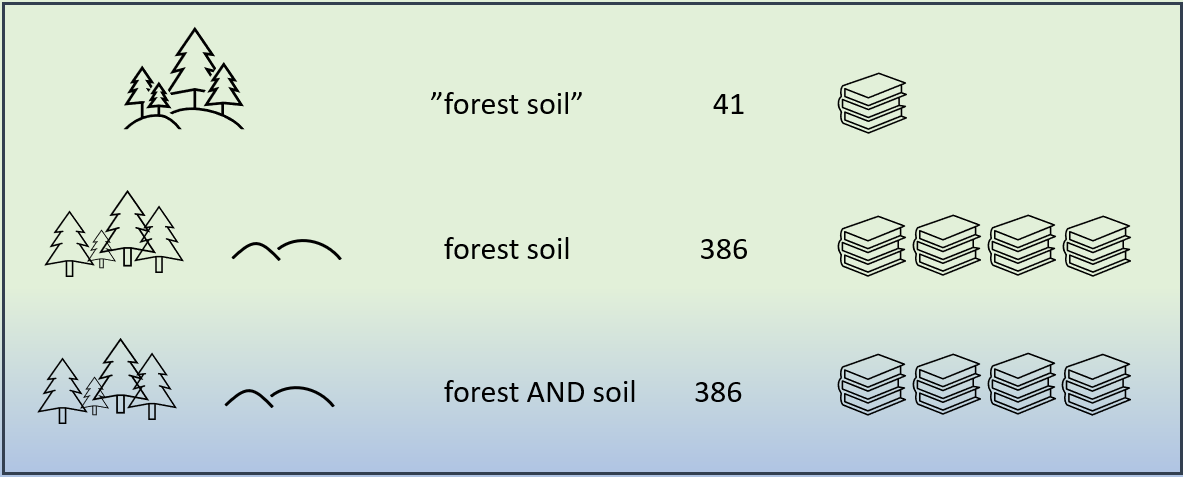Phrase searching
A phrase is a group of two or more words that express a single idea or meaning, when written next to each other.
Phrase searching means searching a database for words together, in a precise order.
By the general rules, the way to search for terms next to each other is to enclose them in quotation marks:
- “global warming”
- “coastal marine fish”
The quotation mark in question is double quote “, not single quote ‘ clicked twice.

A phrase searching helps to screen out the cases, where the words occurring together is essential to the meaning of a search term.
A good example is “forest management”: ‘a branch of forestry concerned with overall administrative, economic, legal, and social aspects, as well as scientific and technical aspects, such as silviculture, protection, and forest regulation’ (definition from Wikipedia).
Example:
- “Interactions between windthrow, bark beetles and forest management in the Tatra national parks”
The meaning of the phrase is lost, if the words don’t appear together:
- “Divergent trends in ecosystem services under different climate-management futures in a fire-prone forest landscape“
So a phrase searching is a very useful but also a restricting search tool. The number of results usually decreases if you use a phrase.

Using a phrase is sometimes a good way to get rid of irrelevant results. But it is good to be aware, that it might leave also something useful out from the result. There might be some extra terms in the middle of the “basic” phrase or the phrase can be written with of-expression, for instance.
- “Participatory and multi-criteria analysis for forest ecosystem management: A case study of Pohorje, Slovenia“
- “Balancing Ecosystem Services and Disservices: Smallholder Farmers’ Use and Management of Forest and Trees in an Agricultural Landscape in Southwestern Ethiopia“
Watch a video about phrase searching by Conestoga College Library (1:15). Link in the picture will take you to YouTube:

To Do:
- Figure out, which of your search terms might be used as a phrase
- Recognise alternative ways of expressing your phrases
- Place quotation marks around phrases
- Prepare to give up your phrases, if they turn out to be too restricting
Next page: Truncating words